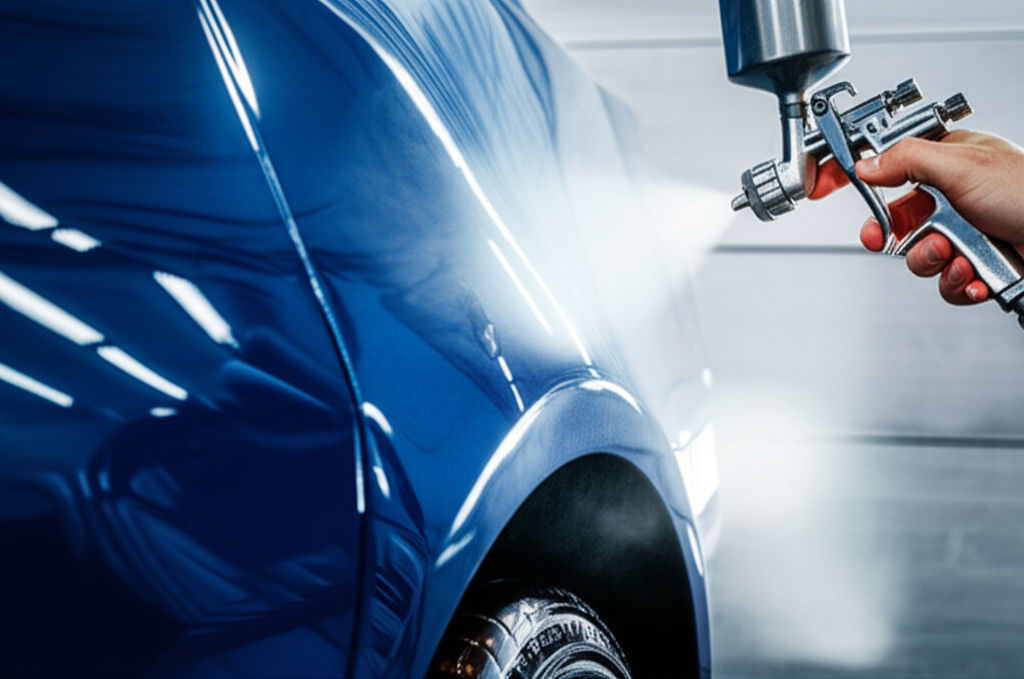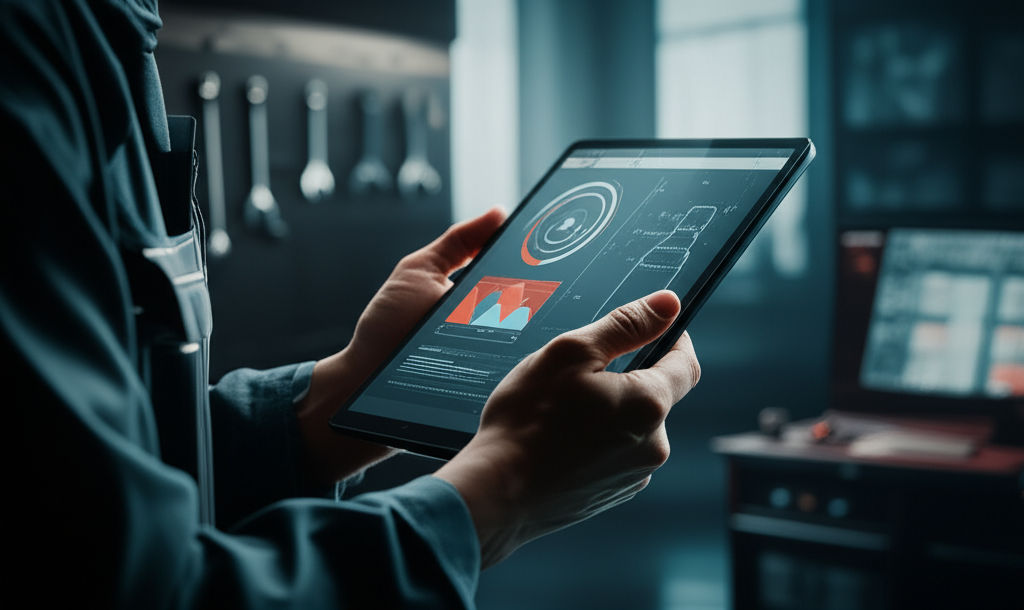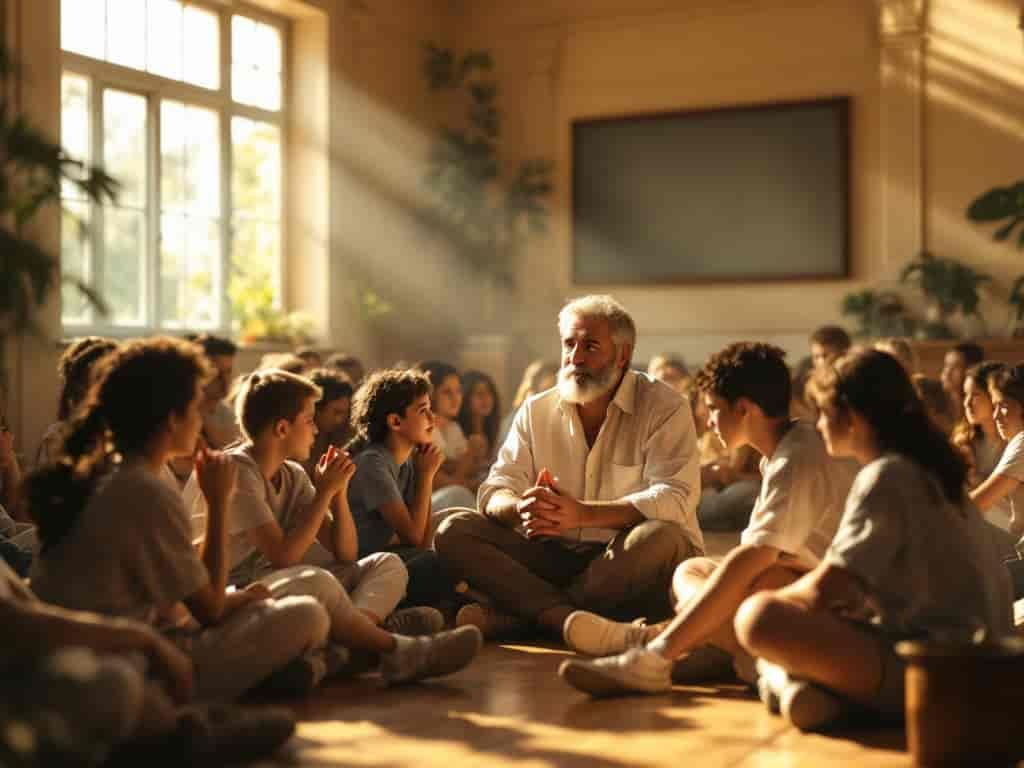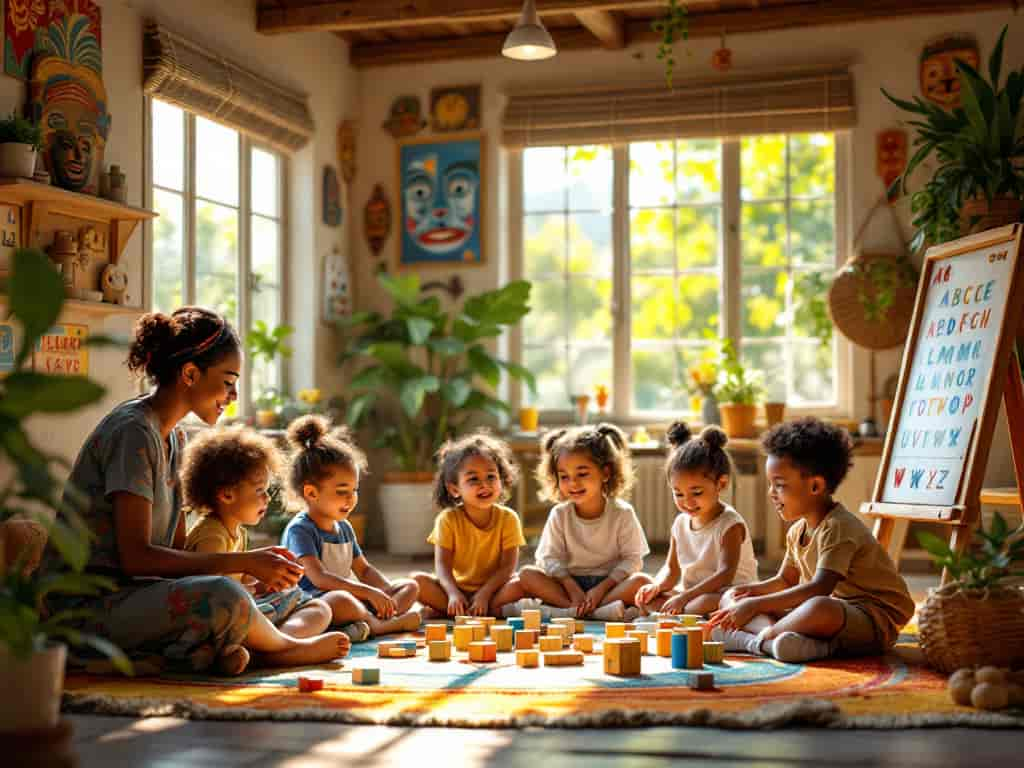Montessori vs. Traditional Education: Key Differences
Ellie Moore

Photo: Montessori vs. Traditional Education: Key Differences
Montessori vs. Traditional Education: Key Differences
Education is the foundation for a child’s development, shaping their future and personal growth. Over the years, several educational philosophies have emerged, with Montessori and Traditional Education being two of the most widely recognized systems. But what makes these two approaches so different, and which one is better suited for your child? This article will delve into the key differences between Montessori and Traditional Education, helping you make an informed decision about the best educational path for your child.
What Is Montessori Education?
Montessori Education, founded by Dr. Maria Montessori in the early 1900s, is an educational method based on the belief that children learn best when they are given the freedom to explore and interact with their environment at their own pace. It emphasizes hands-on learning, independence, and a child-centered approach.
Core Principles of Montessori Education
- Self-Directed Learning: Montessori classrooms encourage students to choose their own activities, allowing them to take charge of their learning.
- Mixed-Age Groups: Children of different ages often work together, fostering peer teaching and leadership skills.
- Individualized Learning: Montessori teachers observe and assess each child’s unique needs, allowing for personalized learning plans.
- Hands-On Materials: Concrete, tactile materials are used to facilitate abstract thinking, making learning more engaging and effective.
- Focus on Practical Life Skills: Montessori places a strong emphasis on developing life skills like problem-solving, communication, and self-care.
What Is Traditional Education?
Traditional Education, often referred to as conventional or mainstream schooling, is a more structured approach to learning. It typically involves a set curriculum, teacher-led instruction, and standardized testing. Traditional classrooms are often arranged by age group, with students progressing through a linear sequence of subjects.
Core Principles of Traditional Education
- Teacher-Centered Instruction: In traditional classrooms, the teacher is the primary source of knowledge, and students are expected to listen and follow instructions.
- Standardized Curriculum: The curriculum is generally uniform for all students, with little room for deviation based on individual needs.
- Age-Based Grouping: Students are grouped by age, progressing to the next grade level at the end of the academic year.
- Emphasis on Testing: Performance is often assessed through tests and exams, which play a significant role in determining a student’s academic success.
- Focus on Academic Subjects: Traditional education often prioritizes subjects like math, science, and literature over personal development or life skills.
Key Differences Between Montessori and Traditional Education
While both Montessori and Traditional Education aim to foster academic achievement, their methods, philosophies, and practices differ significantly. Let’s break down the key differences.
1. Learning Environment
- Montessori: The classroom is designed to be an inviting, flexible space where children can move freely, choose their own activities, and work independently. Furniture and materials are child-sized, and the environment is calm, encouraging a sense of autonomy and responsibility.
- Traditional: Traditional classrooms are more structured and often feature rows of desks, where students face forward and the teacher directs the learning. The focus is on group instruction, with less opportunity for students to work individually.
2. Role of the Teacher
- Montessori: In a Montessori setting, the teacher is more of a guide or facilitator than a traditional instructor. Teachers observe each child’s interests and needs, providing them with resources and opportunities to learn at their own pace.
- Traditional: The teacher is the central authority in a traditional classroom, delivering lessons and directing students' learning. The focus is on transmitting knowledge, with less emphasis on individualized attention.
3. Curriculum and Teaching Style
- Montessori: Montessori follows a more flexible, student-centered curriculum. Children are encouraged to explore subjects based on their interests, which allows them to become deeply engaged with topics. Learning is interdisciplinary, meaning that subjects are often taught in an integrated way.
- Traditional: Traditional education follows a fixed, standardized curriculum that all students must follow. The learning is often subject-specific, with distinct boundaries between disciplines like math, history, and language arts.
4. Assessment Methods
- Montessori: Assessment in Montessori is primarily observational. Teachers assess students’ progress based on their engagement, skill mastery, and personal development, rather than standardized tests or exams.
- Traditional: Traditional education relies heavily on standardized testing and grades to assess student performance. Tests, quizzes, and assignments are used to gauge academic achievement and determine progression.
5. Student Autonomy and Independence
- Montessori: A hallmark of Montessori education is the encouragement of independence. Students are given the freedom to choose their activities, manage their time, and take responsibility for their learning.
- Traditional: Traditional education tends to be more structured and controlled, with students following a set schedule and curriculum dictated by the teacher or school system.
Pros and Cons of Montessori Education
Pros:
- Encourages Self-Discipline: Students are encouraged to make their own decisions, which builds confidence and responsibility.
- Fosters Creativity: With a focus on hands-on learning and exploration, Montessori students often develop strong creative and problem-solving skills.
- Tailored Learning: Each child’s educational journey is personalized to their interests and developmental pace.
Cons:
- Lack of Structure: Some children may struggle without a more rigid, structured environment.
- Limited Social Interaction: The mixed-age groupings might not provide enough opportunities for children to bond with peers their own age.
- Less Focus on Traditional Testing: For parents who value conventional academic assessments, the Montessori system may seem less transparent.
Pros and Cons of Traditional Education
Pros:
- Structured Learning: The structured environment can be beneficial for children who thrive with clear expectations and routines.
- Clear Metrics for Progress: Standardized tests provide a clear measure of academic achievement.
- Social Development: Traditional schools often place a strong emphasis on socialization, with children interacting regularly with peers of the same age.
Cons:
- Limited Individualization: The one-size-fits-all approach can leave some students behind, especially those with learning differences or unique interests.
- Less Hands-On Learning: Traditional education can sometimes focus too much on theoretical knowledge and not enough on practical application.
- Test-Driven: The emphasis on testing can lead to a stressful environment, where students are more concerned with grades than true learning.
Which Is Better: Montessori vs. Traditional Education?
Ultimately, the choice between Montessori and Traditional Education depends on your child’s personality, learning style, and needs. Montessori is ideal for children who thrive in an environment that encourages independence, creativity, and hands-on learning. It’s perfect for those who benefit from individualized instruction and want to explore subjects at their own pace.
On the other hand, Traditional Education might be a better fit for children who excel in structured environments and enjoy clear guidelines. It’s also suited for those who are accustomed to conventional grading systems and need a more predictable routine.
Conclusion: Making the Right Choice for Your Child
Choosing between Montessori and Traditional Education can be a complex decision. Both systems have their strengths and weaknesses, and the right choice largely depends on your child's learning preferences and your educational goals. Regardless of which system you choose, it’s important to remember that the most successful educational experiences occur when children feel supported, engaged, and inspired to learn.
Call-to-Action
Have you had experiences with either Montessori or Traditional Education? Share your thoughts or questions in the comments below. If you're still unsure which system is right for your child, feel free to reach out for personalized advice or explore other related articles on our site.
FAQ
Q1: Can Montessori education work for children with special needs?
A1: Yes, Montessori’s individualized approach can be beneficial for children with learning differences. The focus on personalized learning and hands-on materials can cater to a variety of learning styles.
Q2: Are Montessori schools more expensive than traditional schools?
A2: Montessori schools can sometimes be more expensive due to their unique teaching methods and smaller class sizes. However, this varies depending on location and institution.
Q3: Is there a difference in social development between Montessori and traditional schools?
A3: Montessori schools emphasize mixed-age learning, which fosters collaboration across different age groups, while traditional schools group children by age, often offering more peer interaction. Both systems provide valuable social learning experiences.
Finance & Investment
View All
May 10, 2025
AutoNation Finance ServicesDominate search results with expert SEO content. Discover the blueprint for creating valuable, authoritative, and trustworthy information that drives organic tr...
Ellie Moore

November 25, 2025
GMC Finance Options for New Car BuyersGo beyond "good enough." Discover expert SEO content: what it is, why it's vital for Google E-E-A-T, rankings, and building authority. Get actionable steps.
Ellie Moore

July 1, 2025
Capitol One Auto Finance UpdatesMaster expert SEO content to dominate search, build authority, and drive conversions. Go beyond keywords with valuable, people-first content for top rankings.
Ellie Moore

November 19, 2025
Mazda Financing Options That Fit YouCreate expert SEO content that ranks high and builds trust. Learn E-E-A-T, understand user intent, and dominate search results with actionable strategies.
Ellie Moore

May 17, 2025
Finance Internships Summer 2025Master expert SEO content beyond keywords. Leverage E-E-A-T to build authority, rank higher, and drive conversions by delivering genuine value.
Ellie Moore

June 22, 2025
Term Finance Certificate Complete OverviewUnlock top rankings & authority with expert SEO content. Learn to create valuable, in-depth material that builds trust, drives traffic, and grows your business.
Ellie Moore
Insurance
View AllDiscover the world of reinsurance, its purpose, and how it protects insurers against big claims.
Ellie Moore
Learn how blockchain is enhancing transparency and security in modern insurance policies. Is your coverage future-ready?
Ellie Moore
Navigate risks & secure your future with The General Insurance Solutions. Essential for agents, policyholders & risk managers to optimize coverage & gain peace...
Ellie Moore
Learn how liability insurance shields businesses from financial risks and legal challenges. Secure your company's future today!
Ellie Moore
Don't let vet bills break the bank. Discover top pet insurance solutions to secure your furry friend's health and your financial peace of mind.
Ellie Moore
Unlock the secrets to getting cheap auto insurance fast! Our guide helps you find the best rates and reliable coverage, turning a daunting task into a financial...
Ellie Moore
Education
View AllExplore how virtual reality is revolutionizing learning by providing immersive educational experiences. Ready to see VR in action?
Read MoreFinancial literacy is essential for today’s students. Discover why teaching money management early can lead to smarter financial decisions.
Read MoreRevive ancient teaching with the Socratic method! Learn how this questioning approach encourages deep thinking and active learning.
Read MoreDifferent cultures approach early education in unique ways. Discover how cultural values shape learning practices for young children around the world.
Read MoreUnderstanding memory is key to better teaching. Learn how memory functions and how to use this knowledge to enhance teaching techniques.
Read MoreProject-based learning engages students by tackling real-world problems. Learn how this approach fosters critical thinking and creativity.
Read MorePopular Post 🔥
View All
1
2
3
4
5
6
7
8
9
10
Health






Automotive
View All
August 18, 2025
What To Expect From An Automotive Technician Job
Beyond wrenches: Discover the modern automotive technician career. It's a dynamic, high-tech role focused on diagnostics, tech, and problem-solving.

July 15, 2025
Tips For Using Automotive Spray Paint Like A Pro
Master automotive spray painting! Get pro tips for flawless DIY car paint jobs, from meticulous prep to perfect technique. Save money, get showroom results.

August 23, 2025
Finish Line Automotive Keeps You On Track
Keep your car safe, save money, and extend its life with Finish Line Automotive's expert maintenance & repair. Stay "on track"!

February 8, 2025
Winter Driving 101: Tips & Must-Have Equipment
Stay safe on icy roads with these essential winter driving tips and equipment recommendations. Don’t hit the road unprepared!

July 12, 2025
Automotive Technician Salary Insights And Facts
Discover the evolving role and salaries of tech-savvy automotive technicians. Get insights into earning potential, from entry-level to experienced pros.

July 30, 2025
Anything Automotive You Should Know Today
The automotive world is shifting! Learn about EVs, charging, and new tech to make smarter driving decisions for your wallet and the planet.

















